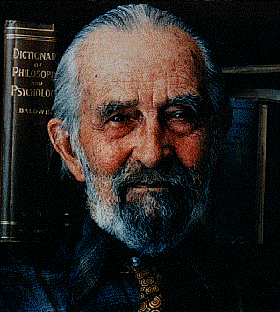Consciousness, descending from above the field of subject-object knowledge, is distorted just as soon as it is forced into the relative form of expression. In the latter field, discursive formulation has finished its task when it has finally shown what non-relative Knowledge is not. It clears the ground so that no obstruction remains for entering the Darkness and Silence. But when the ‘Voice of Silence’ speaks into the relative world, the meaning lies between the words, as it were, rather than in the direct content of the words themselves…. We may say that the sequence of words is like the obverse side of an embroidered design. One must turn to the other side of the cloth to see the real figure.
There are men of strange taste who seem to like the resultant gambler’s world of complete uncertainty wherein nothing may be trusted and only illusions are left to feed the yearning for belief. But for all those of deeper religious need, the death of hope for certainty is the ultimate tragedy of absolute pessimism — not the relative pessimism of a Buddha, a Christ, or a Schopenhauer, who each saw the hopeless darkness of this dark world as well as a Door leading to the undying Light, but rather a pessimism so deep that there is no hope for Light anywhere. Somewhere there must be certainty if the end of life is to be more than eternal despair. And to find this certainty something other than criticism is required.
Now what you’ve gotten a hold of is a very difficult fellow — it’s your ego. He can sneak around and confuse you like the dickens. You can spend years trying to get behind him. And what you do, you can get into an infinite regression. You look at your ego. All right, here am I and all of a sudden it dawns upon you that that which is looking at the ego is really the I. So you stick that one out in front. You look at it again, but then your realize it couldn’t be, because here is a something that is observable. At last it finally dawns that I AM THAT which is never an object before Consciousness. And mayhap, at that moment, in your analysis — the Heavens will open.
Life:
Birth: Franklin Merrell-Wolff was born in 1887 in Pasadena, California.
Realization: It was while in deep contemplation of the teachings of Shankara that, in 1936, Wolff’s efforts culminated in two “Fundamental Realizations” that would provide the foundation for his philosophy. While the first Realization confirmed the perspective of Shankara’s philosophy, the second Realization was unexpected and opened Wolff’s philosophical view beyond his understanding of Advaita Vedanta.
Death: Franklin Merrell-Wolff died in 1985 at the age of ninety-eight eastern in Sierra Nevada near Lone Pine, California.
Teaching Style: After a year at Harvard, he returned to Stanford to teach the mathematics as a professor but he left his promising career in academia to engage in a spiritual quest. He spent his long life writing, lecturing, and teaching.
Fame: Franklin Merrell-Wolff was an American philosopher, mathematician and sage who combined an extra ordinary intellect with profound mystical insight and authenticity. After formal education in philosophy and mathematics at Stanford and Harvard, Wolff devoted himself to the goal of transcending the normal limits of human consciousness. Wolff’s long life was spent writing, lecturing, teaching, and working the land.
Legacy: He seemed most affected by the Indian author Shankara. He felt a great affinity with the writings of this sage, and his view of Vedanta. He also acknowledged his debt to the Western philosopher Immanuel Kant for his investigation into the nominal world which lies behind and beyond the phenomenal world of the senses. Though Franklin was an American, he did achieve genuine guru status himself, and gained disciples across the world.
Teachings:
According to Franklin Merrell-Wolff “It seems clear that no man can effectively illuminate the Way for all men. There is more than one main Road and a great number of sub roads. On all these, men who can serve as beacons are needed.”
Franklin mentioned on different occasions that the “Current of bliss” had a purifying affect on the body. This brought on a certain degree of tiredness due to the stress on the body when he remained immersed in it for an extended period. He therefore needed sleep after a prolonged period of contact with higher states.
Franklin says, “Both by thought and feeling,” this suggests that there are different aspects of our own nature or awareness that are peculiar to how we live the world, and how we orient to the Transcendent.
According to him “The three modes of consciousness are cognition (thinking), affection (feeling), and conation (willing), which correlate to the three Indian approaches to spirituality, namely, jnana, bhakti, and karma yoga—the trimarga. These refer to knowledge, devotion, and action or works, respectively.”

